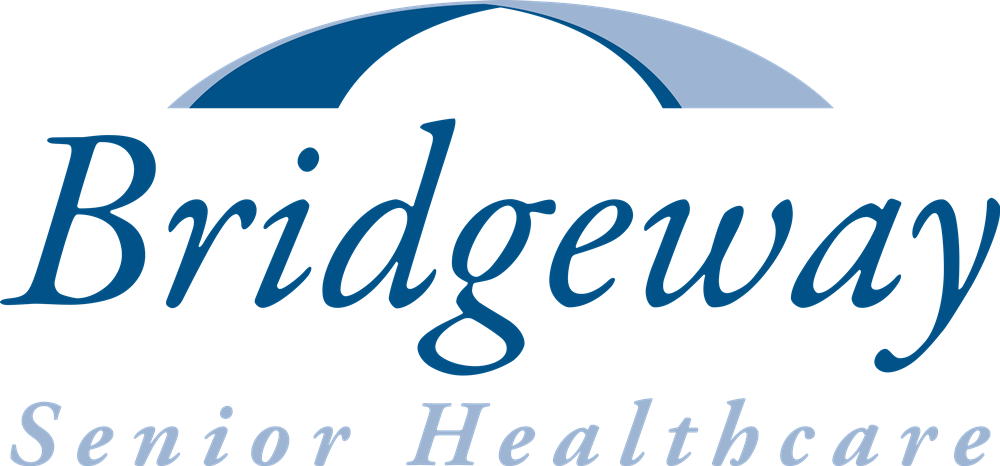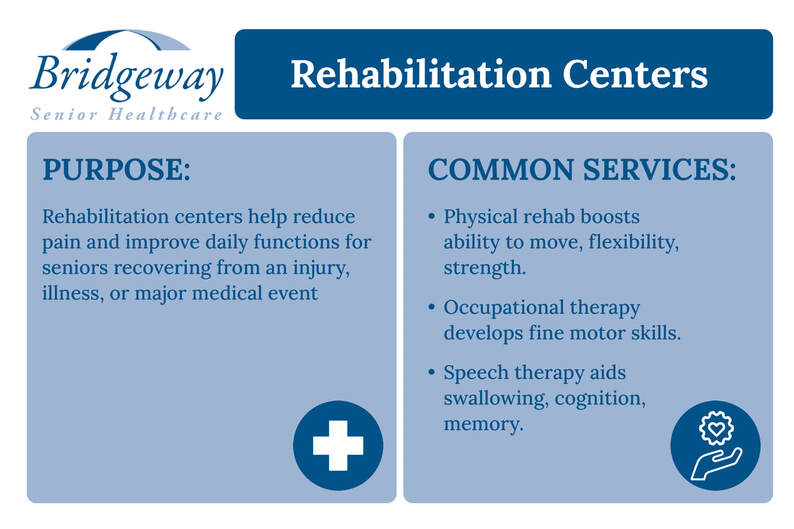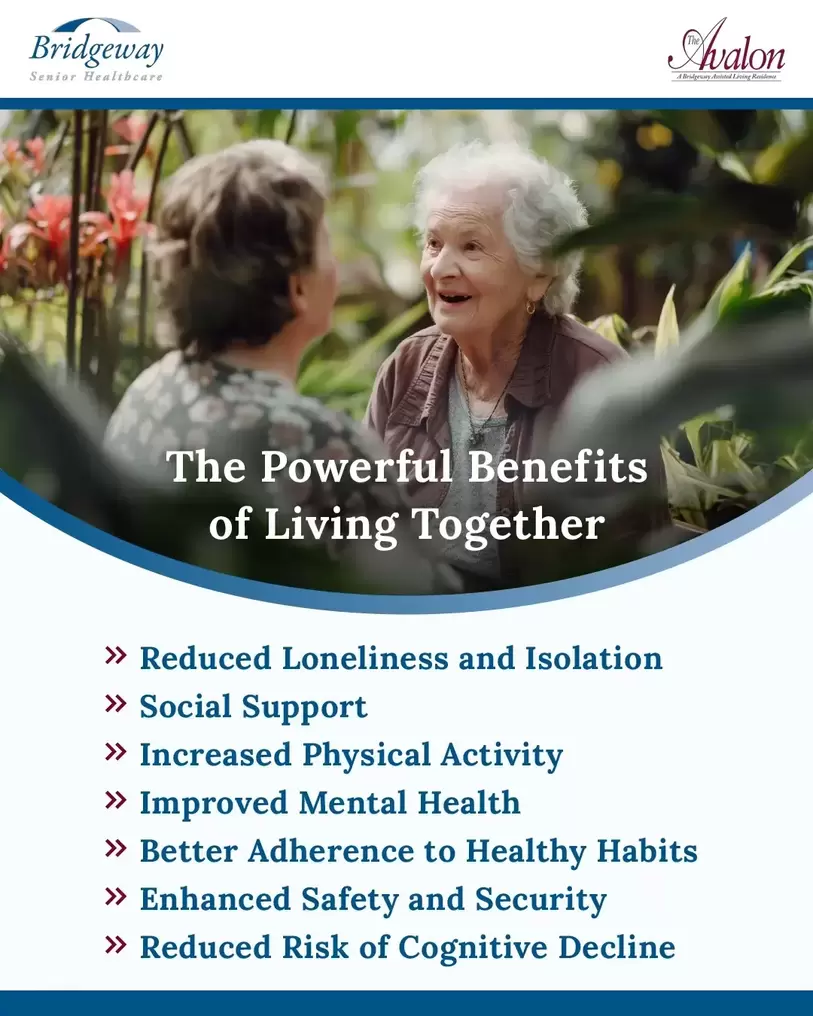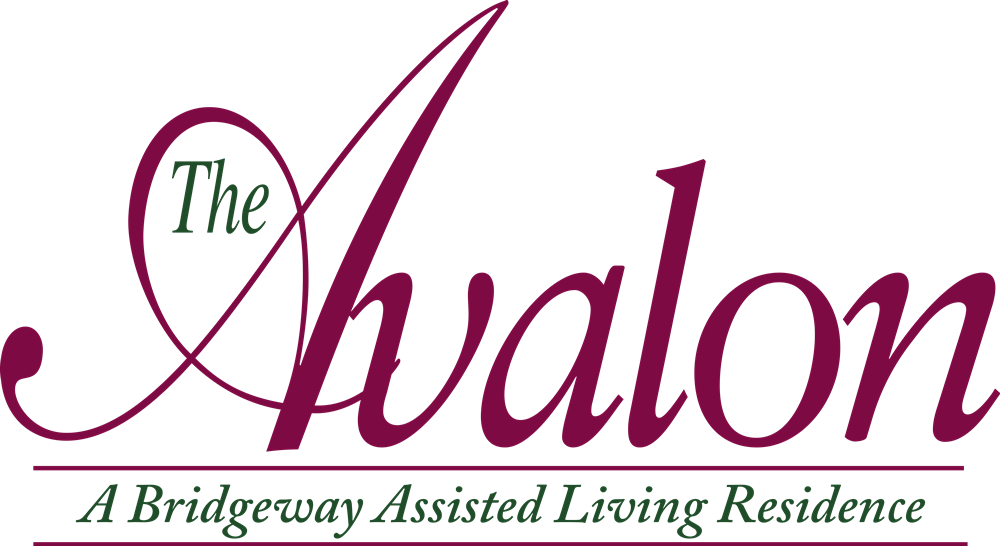|
When families face the decision of moving a loved one into assisted living, it's a journey filled with complex emotions and practical considerations. Amidst the challenges, there are core desires that drive the decision-making process. Understanding these desires can help families navigate this difficult transition with clarity and purpose. Here are ten key desires that families often experience when considering assisted living for their loved ones:
1. Ensuring Safety and Well-Being At the heart of every family's decision is the desire to keep their loved one safe. As we watch our parents or relatives age, concerns about falls, medication management, or cognitive decline often become more pressing. Assisted living facilities offer a structured environment with staff available 24/7, providing families with the assurance that their loved one is protected and cared for round the clock.
0 Comments
In the relentless quest to combat Alzheimer's disease and dementia, researchers are continually uncovering new insights into effective preventive measures and treatments. Among these, a groundbreaking exercise approach called "dual task" has emerged as a promising strategy for maintaining brain health and even reversing cognitive decline.
Alzheimer's disease, the most common form of dementia, affects millions worldwide, robbing individuals of their memories, cognitive abilities, and independence. While there is currently no cure for Alzheimer's, research suggests that lifestyle factors play a crucial role in its prevention and management. A multifaceted approach is essential, encompassing various aspects of daily life, including exercise, diet, sleep, stress management, social engagement, and mental stimulation. However, one particular form of exercise stands out for its remarkable impact on brain health: dual task exercise. Making the decision to move a loved one into assisted living is one of the most challenging experiences a family can face. It's a journey filled with emotional turbulence, practical obstacles, and difficult conversations. If you're finding yourself overwhelmed by this process, know that you're not alone. Countless families have walked this path before you, encountering similar hurdles along the way. In this post, we'll explore ten common frustrations that families often experience when considering assisted living for their loved ones, and offer some insights on how to navigate these challenges.
1. Difficulty Finding Reliable Information In today's digital age, we're inundated with information from countless sources. However, when it comes to assisted living, finding trustworthy, objective information can feel like searching for a needle in a haystack. Many families struggle to differentiate between marketing materials and genuine, unbiased reviews or reports.
4. Take Notice of Sudden Changes in the Account
Stay vigilant for any changes in financial accounts because there won't be a clear signal when someone's starting to struggle with money matters. Build strong relationships later in life that keep the family in the loop. Make them comfortable with sharing their worries and learn to react with care if ever trouble arises. Reacting negatively or too strongly to an incident may likely lead to avoidance and hesitancy to discuss problems in the future. Tip: Keep an eye out for warning signs like not knowing which bills are paid, sudden changes in spending habits, bounced checks, and late fees on credit cards. 5. Make Money Matters Easy to Understand Simplify finances. Let’s say they had six credit cards, reduce them to one debit card linked to someone’s credit union and two credit cards---this is merely a suggestion among many compromises that can be made. The key idea here is to reduce the number of credit or debit cards to easily manage finances. Take note of what interests the elderly would like to keep and other significant matters that may require separate credit or debit cards. Also make it a routine to check on their expenses, create a budget for them, and consider arranging for bills to be paid automatically if necessary. Another option would be to have someone take care of paying the bills. 6. Be Updated With the Ongoing Scams Stay updated on local scams and make sure your parents are aware of the latest tricks. One way to start the conversation is by simply asking, "Have you heard about the latest scam?" Regularly remind them not to respond to any requests for personal information, whether by email, mail, or phone. This includes things like Social Security or credit card numbers, or offers to buy products or investments they didn't ask for. Sometimes it's not a clear scam. It could be a simple request for a yearly subscription, or a donation of sorts to a charity that doesn’t actually exist. A suggestion is to turn scam spotting into a "family activity"—everyone can keep an eye out, share emails, talk about scams, and keep each other safe by staying informed. You can find helpful information on identifying and avoiding scams on the Federal Trade Commission's website. If you or someone you know has been a victim, consider reporting it to the Department of Justice National Elder Abuse Hotline or the FBI Internet Complaint Center. 7. Get Connected With People Staying connected socially is important because isolation can lead to financial problems. But staying connected isn't always easy due to distance, busy lives, or family dynamics. Sometimes our own guilt about not staying connected stops us from doing anything at all. Even small things like starting a family group chat, or calling just to talk rather than to solve a problem, can strengthen relationships. Any form of interaction is better than none, so if you feel the urge to reach out, just do whatever you can manage. And if you're unsure how to start or what to say, simply asking genuine questions and listening can make a big difference. 8. Assign Responsible Family Members You can manage money more effectively by dividing tasks among family members. If for instance, there is a family member skilled in money management, then it would be practical to have them handle the more delicate financial affairs. The same person can also provide guidance and share knowledge to the rest of the family. Another example would be if a family member is good at organization, they can be in-charge of document keeping---it doesn’t always have to be a high-end skill. Even a younger relative or sibling who's good with social media can be assigned to look out for famous and ongoing scams. Another option is to appoint a "trusted contact" for a parent or loved one—a person whom a financial institution can reach out to in specific situations, such as concerns about the elder person's account activity when they can't be reached. While this designation doesn't grant the contact authority to act on the account, it adds an extra layer of protection against scams. 9. Keep Constant Watch On Your Accounts Keeping an eye on your accounts for any signs of fraud is crucial. There are useful tech tools available to help in this fight. One option to consider is FidSafe®, a secure online safe deposit box where you can store digital copies of important documents like bank statements, birth certificates, insurance policies, passwords, tax records, and wills. Another tool, EverSafe, sends alerts for suspicious activity such as unusual withdrawals, missing deposits, strange charges, changes in spending habits, and more. You can choose 3 or 4 people to receive these alerts. You can grant access to friends, family members, or a lawyer, and you can keep the specific account balances private if privacy is a concern. Monthly fees vary depending on the number of accounts you have. 10. Routinely Discuss Money Matters With the Family Setting up regular family meetings to discuss your parents' financial matters is essential for preventing elder financial abuse. Scheduled meetings, although may sound cumbersome, is the best way to keep everyone informed and involved. But take note to keep it focused so the discussion can be fruitful and productive. Protecting elders from money fraud is a responsibility we all share. By following these simple yet effective tips, we can create a safer environment for our elderly loved ones to navigate the complexities of modern finance. Let's continue to educate, support, and advocate for the financial well-being of seniors, ensuring that they can enjoy their golden years free from the threat of exploitation and fraud. Together, we can build a more secure future for all generations to come. Often overlooked when talking about senior health, Occupational Therapy & Support is actually important, especially for retirees. While often associated with professional pursuits, it’s not just about jobs — it covers a lot of things that a senior could do.
Going into the details of occupational therapy for seniors reveals a world of fulfillment. To understand it better, we’ve prepared this article that explains the idea behind the therapy and strategies to help promote it. What is Occupational Therapy & Support? Occupational therapy & support is a special aspect of well-being that focuses on the satisfaction and a sense of achievement gained from our daily activities. It's important to understand that "work" isn't limited to jobs and paychecks, it includes anything that brings us fulfillment and allows us to use our skills and talents — things that make us feel like we have a purpose and such activities that let us use our skills and talents the best we can. Examples of occupational therapy and support include doing the hobbies we enjoy, helping others for free, or spending time with friends in a way that matters. These things make us really happy and make life better. Why Occupational Therapy & Support Matters? Occupational therapy and support for seniors play a vital role in increasing independence, quality of life, and overall well-being as individuals age. These interventions address a wide range of physical, cognitive, emotional, and social needs, helping seniors live fulfilling and meaningful lives.
Strategies for Promoting Occupational Therapy & Support These strategies can help raise awareness, increase access to services, and ultimately improve the lives of seniors through occupational therapy and support.
BSH Care strongly supports occupational therapy and support services tailored specifically for seniors. We believe in empowering individuals in their golden years to rediscover and pursue their passions, ensuring a life filled with fulfillment and purpose well into retirement and beyond. Our comprehensive programs are designed to cater to the unique needs of seniors, offering them the tools and resources they need to thrive in all aspects of their lives. Whether it's enhancing physical well-being, promoting cognitive health, or fostering social engagement, we are committed to accompanying seniors on their journey towards holistic well-being. In the quest to find the most appropriate support for loved ones with memory issues, spacious, private apartments often take precedence. However, an increasing number of families recognize the significant benefits of shared rooms within memory care programs, realizing that these communal living arrangements can not only help mitigate cognitive decline but also foster engagement, all while presenting significant financial advantages.
The merits of shared living spaces are particularly conspicuous within residential senior communities, where a limited number of residents reside in a homely setting under the attentive care of a dedicated team. At Bridgeway Senior Healthcare, we've witnessed firsthand the transformative impact of shared rooms, and we're eager to share their array of benefits. Advantages of Shared Rooms in Memory Care CommunitiesAdvantages of Shared Rooms in Memory Care Communities--
In essence, shared rooms in memory care communities represent far more than mere living spaces; they serve as catalysts for holistic well-being, fostering engagement, companionship, and financial stability. At Bridgeway Senior Healthcare, we're committed to providing a nurturing environment where residents can thrive physically, intellectually, and socially, ensuring that every individual receives the support they need to lead fulfilling lives. As we age, it's no secret that maintaining physical fitness helps support our well-being, aiding in pain management, disease prevention, and overall recovery. Yet, alongside physical activity, the connections we create with those around us and the bonds we nurture play an equally vital role in our overall health and wellness.
Research shows that the primary benefits seniors experience from staying socially active and engaged include:
Activities for Social Connections and Fulfillment Beyond the health dividends, staying connected enriches life with purpose and a profound sense of belonging. Here are ways to engage with peers and nurture meaningful connections:
Encounter New People and Experiences at BSH Care At Bridgeway Senior Healthcare (BSH) Care, we recognize the enduring value of social connectivity for our residents. Our retirement community offers a wealth of life-enriching programs, events, and amenities designed to foster lasting friendships and vibrant living. Experience the warmth of BSH Care firsthand and embark on a journey of new friendships and discoveries. Contact us today to arrange your personalized tour and embrace a lifestyle centered on connection and fulfillment. In the delicate journey of aiding elderly family members through rehabilitation post-hospitalization, comprehensive understanding and informed decision-making are paramount. From navigating a plethora of care options to ensuring optimal recovery outcomes, each step demands thoughtful consideration.
Let's delve deeper into the multifaceted landscape of senior rehabilitation, exploring various modalities, nuanced considerations, and strategies for crafting personalized care plans tailored to individual needs. Understanding the Dynamics of Senior Rehabilitation Senior rehabilitation stands as a pivotal phase in the recovery process, specifically tailored to assist seniors in recuperating from injuries, surgeries, or significant medical events. Whether facilitated within dedicated facilities or integrated into home or assisted living environments, the overarching goal remains consistent: to foster independence, restore functionality, and enhance overall well-being. Types of Rehabilitation Therapies Within the realm of senior rehabilitation, a diverse array of therapeutic modalities stands poised to address multifaceted needs and conditions. These encompass:
Importance of Rehabilitation for Senior Well-Being While musculoskeletal issues and joint replacements rank prominently among rehabilitation needs for seniors, a spectrum of other conditions necessitates specialized therapeutic interventions. These may include strokes, respiratory ailments such as pneumonia, chronic diseases like arthritis, and neurological disorders such as Parkinson's disease. The significance of rehabilitation in the elderly population cannot be overstated. As emphasized by Maureen Bradley, a seasoned expert in senior living, effective rehabilitation endeavors not only enhance the individual's chances of recovery but also offer respite and peace of mind to families. By availing comprehensive resources and expert care, rehabilitation centers serve as catalysts for restoring mobility, managing pain, and fostering cognitive vitality. Making the Choice Choosing the appropriate rehabilitation setting demands collaboration between healthcare providers, families, and the seniors themselves. Options range from skilled nursing facilities, offering comprehensive inpatient care, to assisted living communities integrating rehabilitation services within their continuum of care. Considerations encompass medical needs, financial constraints, and personal preferences, guiding the selection process. Inpatient Rehabilitation VS Outpatient Rehabilitation Senior rehabilitation services extend across both inpatient and outpatient settings, each catering to distinct needs and circumstances. Inpatient rehabilitation entails comprehensive care within a dedicated facility, facilitating intensive therapy sessions alongside essential daily assistance. Conversely, outpatient rehabilitation offers flexibility, enabling seniors to attend therapy sessions at intervals, either at specialized centers or within their residential settings. Short-Term Rehabilitation VS Long-Term Rehabilitation The duration and intensity of rehabilitation interventions hinge on the individual's health status and specific requirements. While minor surgeries may warrant brief stays at rehabilitation centers, chronic conditions or significant medical events could necessitate prolonged rehabilitation periods, potentially within skilled nursing facilities providing round-the-clock care. Senior Rehabilitation Alternatives In instances where returning home post-rehabilitation is unfeasible, exploring alternative long-term care options becomes imperative. Hospital social workers or case managers can assist in identifying suitable placements, whether in skilled nursing or assisted living facilities, aligning with evolving needs and preferences.
Open communication with healthcare providers is instrumental in navigating the rehabilitation journey effectively. Key inquiries revolve around therapy requirements, insurance coverage, caregiving needs, and potential safety concerns post-discharge. Armed with comprehensive information and support, families can navigate the post-hospitalization phase with clarity and confidence, ensuring optimal care for their elderly loved ones. Did you know that as people age, staying connected becomes more challenging? It's a common issue among older adults, with nearly half of those over 60 reporting feelings of loneliness. But there's a silver lining: simple activities and supportive communities can make a world of difference in their lives and at Bridgeway Senior Healthcare, we prioritize this aspect of our resident's social lives.
Easy Activities Can Make a Big Difference Loneliness isn't just a feeling—it's a significant health concern. Research shows that seniors who lack social connections face a higher risk of mortality, comparable to obesity, smoking, and physical inactivity combined. This underscores the importance of addressing social isolation and loneliness in the elderly population. Social isolation and loneliness aren't interchangeable terms. Social isolation refers to limited social contact, while loneliness is the subjective feeling of being alone, even in the presence of others. Both can have profound effects on mental and physical health, contributing to conditions like depression, anxiety, and cognitive decline. Barriers to Social Engagement Various factors can hinder seniors' social engagement. Physical limitations, such as hearing loss or mobility issues, may restrict their ability to participate in social activities. Additionally, health conditions like dental problems or anxiety can lead to self-isolation, as seniors may feel embarrassed or burdensome. Recognizing the signs of social isolation and loneliness is the first step in providing support. Encouraging open communication and gently probing about their social experiences can help identify barriers and preferences. Creating inclusive environments that accommodate different abilities and interests is essential for fostering social connections. Promoting Inclusive Activities Engaging seniors in activities tailored to their interests and abilities is key to combating loneliness. From games and exercise sessions to creative pursuits and outings, there's a wide range of activities that can promote social interaction and cognitive stimulation. Inclusive programming ensures that seniors of all backgrounds and capabilities feel valued and included. Community-Based Solutions Senior living communities play a crucial role in addressing social isolation among older adults. By offering a supportive environment and a variety of activities, these communities help residents stay connected and engaged. From shared meals to group outings, these communal settings facilitate meaningful interactions and foster a sense of belonging. Person-Centered Care for Memory Issues For seniors with cognitive decline, person-centered care is essential. Tailoring activities to their individual preferences and abilities can enhance their quality of life and mitigate feelings of isolation. Creating familiar and comfortable environments while avoiding overstimulation is key to supporting their emotional well-being. Building Stronger Communities Together The fight against social isolation and loneliness requires a collaborative effort. Families, caregivers, and community organizations must work together to identify and address the needs of older adults. By promoting inclusivity and providing support, we can empower seniors to live happier, healthier lives. Embracing a Holistic Approach In our community, we believe in taking a holistic approach to senior care. Our person-centered programs and inclusive activities are designed to nurture social connections and promote well-being. By fostering a sense of belonging and purpose, we empower seniors to thrive and lead fulfilling lives. If you're passionate about supporting seniors and combating loneliness, we invite you to join our community. Together, we can create a more inclusive and supportive environment for older adults. Contact us to learn more about our programs and how you can get involved in making a positive impact on the lives of seniors. As we journey through life, the importance of companionship and social connections becomes increasingly evident, especially as we age. While independence is valuable, the benefits of living with someone else, whether it's a spouse, friend, or family member, cannot be overstated. In the vibrant community of Avalon Bridgewater for seniors, these benefits are amplified, fostering an environment where residents thrive physically, mentally, and emotionally.
Reduced Loneliness and Isolation Loneliness and isolation are significant challenges faced by many seniors, which can have profound effects on their overall well-being. However, at Avalon Bridgewater, residents have the opportunity to forge meaningful connections with fellow residents, alleviating feelings of loneliness and isolation. Whether it's sharing a meal, participating in group activities, or simply enjoying each other's company, companionship is readily available, promoting a sense of belonging and community. Social Support Living in Avalon Bridgewater means having access to built-in social support systems. Whether it's lending a listening ear during challenging times or offering practical assistance with daily tasks, residents can rely on each other for support and encouragement. This network of companionship strengthens bonds and fosters a culture of care and compassion, enriching the lives of everyone in the community. Increased Physical Activity Staying active is essential for maintaining health and vitality, particularly as we age. At Avalon Bridgewater, residents are encouraged to embrace an active lifestyle through shared activities such as group exercises, nature walks, and recreational outings. Living with someone else provides motivation and accountability, making it easier to prioritize physical activity and enjoy the numerous benefits it offers, from improved mobility to enhanced overall well-being. Improved Mental Health The power of social interaction in promoting mental health cannot be understated. Engaging in conversations, sharing laughter, and forming meaningful connections with others stimulate the mind and uplift the spirit. At Avalon Bridgewater, residents have ample opportunities for social engagement, whether it's through organized events, communal gatherings, or casual conversations over coffee. These interactions cultivate a supportive and vibrant community where residents feel valued, heard, and understood. Better Adherence to Healthy Habits Living with someone else often entails shared responsibilities, including meal preparation and lifestyle choices. In Avalon Bridgewater, residents can collaborate on creating nutritious meals, encouraging each other to make healthier food choices and adopt positive lifestyle habits. This collective effort promotes overall wellness and reinforces the importance of prioritizing health and self-care in everyday life. Enhanced Safety and Security Safety and security are paramount concerns for seniors, especially as they navigate the challenges of aging. Living in Avalon Bridgewater provides residents with peace of mind, knowing that they have neighbors nearby who can offer assistance in times of need. Whether it's a medical emergency or a simple household task, residents can rely on each other for support, creating a tight-knit community where everyone looks out for one another. Reduced Risk of Cognitive Decline Engaging in stimulating activities and social interactions is vital for maintaining cognitive function and reducing the risk of cognitive decline. In Avalon Bridgewater, residents have access to a myriad of opportunities for intellectual engagement, from book clubs to educational workshops to lively discussions with fellow residents. These activities foster mental acuity and keep the mind sharp, promoting cognitive health and vitality well into the golden years. In conclusion, living with someone else in Avalon Bridgewater offers a wealth of health benefits for seniors. From reducing loneliness and isolation to promoting physical activity, supporting mental health, and fostering a sense of community, the advantages of companionship and social connection are invaluable. By embracing the opportunity to live alongside like-minded individuals in a vibrant and supportive environment, residents can enjoy a higher quality of life and thrive in every aspect of their well-being. |
|
QUICK LINKS
|
Award-winning care as recognized by
Your comments and satisfaction are important to us.
Consider writing a review on Google or Facebook. |
© 2024 Bridgeway Senior Healthcare. All Rights Reserved | Privacy Policy | Sitemap















